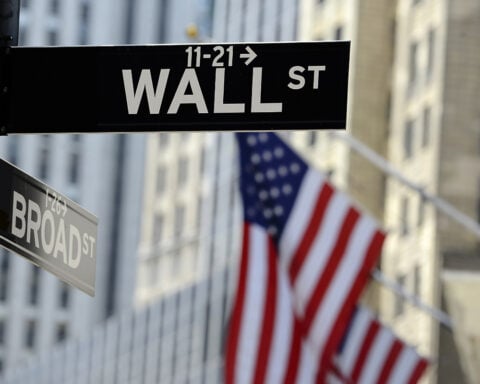The U.S. stock market found itself in a state of flux on Tuesday as it hovered around its record highs, responding to a mixed bag of earnings reports from key companies. The S&P 500 dipped slightly by 0.1% in morning trading, while the Dow Jones Industrial Average slipped 0.1%, shedding 33 points. The Nasdaq composite also saw a 0.2% decline.
UPS, despite reporting stronger-than-expected profits, faced an 8.1% slump in its stock price. The downfall was attributed to the company falling short of Wall Street’s revenue estimates and providing a 2024 revenue forecast weaker than expected.
Whirlpool faced a similar fate, with its stock plummeting by 6%, despite reporting better profits than anticipated. The company’s 2024 revenue forecast of $16.9 billion fell roughly $1 billion below analyst expectations.
However, helping to offset these losses was General Motors, which experienced a 7.3% jump in its stock price after reporting stronger profits and revenue than expected.
In the realm of the bond market, Treasury yields remained relatively stable.They erased earlier losses after a report suggested that the job market might be stronger than economists expected. U.S. employers advertised 9 million job openings at the end of December, slightly more than economists had anticipated and above November’s levels.
Traders had been hoping for signs of a cooldown in the number of job openings, aligning with the trend that has driven Wall Street to its record heights: a slowdown in economic growth that is strong enough to keep inflation in check but not so severe that it leads to a recession.
These hopes have fueled excitement about the potential for the Federal Reserve to cut interest rates multiple times in the coming year. Such cuts would mark a significant shift from the Fed’s previous policy of raising rates over the past two years and could provide a boost to the economy and investment prices.
The Federal Reserve began its latest policy meeting on interest rates, although very few expected it to announce rate cuts at this point. Nevertheless, economists and traders eagerly awaited any clues that might suggest a rate cut could be on the horizon at the next meeting in March.
The yield on the 10-year Treasury slipped slightly to 4.08% from 4.09% late on Monday. This decline followed the release of data on job openings, along with a separate report indicating that consumer confidence was rising more than expected.
After the close of the trading day, two of Wall Street’s most influential stocks, Microsoft and Alphabet, were scheduled to report their latest quarterly results. Both companies carry significant weight in the market, which gives their movements an outsized influence on the S&P 500 and other major indexes. These tech giants, along with five other Big Tech stocks, have played a major role in driving the S&P 500’s impressive rally since hitting a low point two Octobers ago.
Expectations were high for both Microsoft and Alphabet, as they needed to deliver strong results to justify their substantial gains. Microsoft had seen its stock price surge by approximately 69% over the last 12 months, while Alphabet had gained nearly 58%.
Looking ahead, three more of the “Magnificent Seven” Big Tech stocks—Apple, Amazon, and Meta Platforms—were scheduled to report their results on Thursday.
One noteworthy trend in the current earnings season has been that companies reporting better-than-expected profits have not experienced the typical significant boost in their stock prices. Analysts have suggested that this might reflect a cautious sentiment among investors as they await further economic developments.
Meanwhile, in the global financial markets, Chinese indexes encountered ongoing difficulties as they extended their losses from the challenging beginning of the year. Trading in shares of China Evergrande Group, the world’s most heavily indebted real estate firm, remained halted following a court-ordered liquidation in Hong Kong. This event contributed to a broader decline in property-related stocks in Hong Kong, where the Hang Seng index dropped by 2.3%. Additionally, in Shanghai, stocks experienced a 1.8% decline.
Chinese regulators have been taking measures to support the markets amid concerns about the troubled property industry and disappointing growth in the world’s second-largest economy. The situation in China continues to be closely monitored by global investors, adding to the uncertainty in the international financial landscape.







